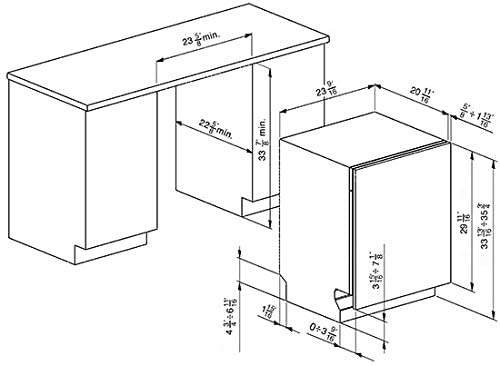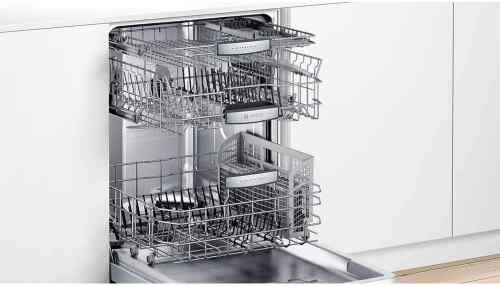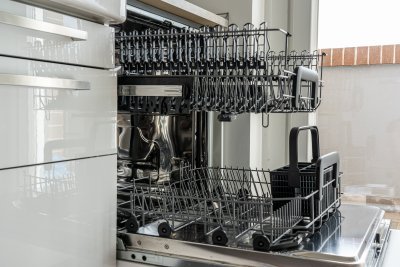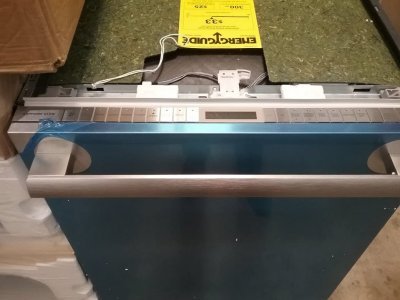Are you tired of the endless pile of dirty dishes in your sink? A dishwasher could be your solution! But before you rush into buying one, it’s crucial to understand the different dishwasher sizes available and which one would best suit your kitchen needs. In this comprehensive guide, we’ll walk you through everything you need to know about dishwasher sizes, from compact models to full-sized giants. Let’s dive in!
In today’s fast-paced world, a dishwasher has become more of a necessity than a luxury. It saves time, water, and energy, making it an eco-friendly choice. However, with various dishwasher sizes available, making the right choice can be overwhelming. Let’s break down the options to help you make an informed decision.
Table of Contents
Why Does Dishwasher Size Matter?
The size of your dishwasher matters for several reasons. First, it determines how many dishes you can wash in a single cycle. Second, it impacts the overall aesthetic and functionality of your kitchen. A dishwasher that’s too large can dominate the space, while one that’s too small might not accommodate your needs.

Compact Dishwashers
Compact dishwashers are a great option for smaller kitchens or households with limited space. These slim units offer convenience while still ensuring your dishes come out sparkling clean. Their smaller size makes them ideal for apartments, tiny houses, or kitchens where space optimization is key.
Advantages of Compact Dishwashers
- Space-efficient design
- Energy-saving due to smaller water capacity
- Perfect for couples or individuals
- Portable and can be moved if needed
Limitations of Compact Dishwashers
- Limited capacity for larger families
- May not accommodate oversized or oddly shaped items
- Fewer advanced features compared to larger models
Standard Dishwashers
Standard dishwashers are the most common and widely used option. They strike a balance between capacity and space, making them suitable for the majority of households. These dishwashers offer a range of features while fitting seamlessly into your kitchen layout.

Advantages of Standard Dishwashers
- Adequate capacity for most families
- Diverse range of brands and models available
- Offers advanced features like adjustable racks and sensors
Limitations of Standard Dishwashers
- Might be too bulky for smaller kitchens
- Water and energy consumption is higher compared to compact models
Oversized Dishwashers
Oversized dishwashers are designed for households with large families or frequent gatherings. These beasts can handle a substantial amount of dishes in one go, perfect for hosting dinner parties or events.
Advantages of Oversized Dishwashers
- High capacity for dishes and utensils
- Reduces the number of cycles needed
- Ideal for big families and social events
Limitations of Oversized Dishwashers
- Takes up a significant amount of kitchen space
- Consumes more energy and water per cycle
Countertop Dishwashers
If you’re tight on space but don’t want to compromise on convenience, countertop dishwashers are an excellent choice. These compact units sit on your countertop and offer a surprising amount of cleaning power.

Advantages of Countertop Dishwashers
- Minimal space requirements
- Portable and can be moved when needed
- Uses less water and energy than standard dishwashers
Limitations of Countertop Dishwashers
- Limited capacity for larger loads
- Might not fit oversized items
Factors to Consider When Choosing a Dishwasher Size
Several factors come into play when determining the right dishwasher size for your kitchen.
Kitchen Space
Consider the available space in your kitchen. Measure the area where you intend to install the dishwasher to ensure it fits seamlessly.
Family Size
The number of people in your household plays a significant role. Larger families may benefit from a standard or oversized dishwasher, while smaller families might opt for a compact model.

Frequency of Use
How often do you plan to run your dishwasher? If you frequently entertain guests or have a busy household, a larger dishwasher might be more suitable.
Special Features
Different dishwasher sizes come with varying features. Determine which features are important to you, such as adjustable racks, specialized cycles, or energy-efficient options.
Installation Considerations
Choosing the right dishwasher size also involves installation considerations.
Built-in vs. Freestanding
Decide whether you want your dishwasher to be built into your cabinetry or freestanding. Built-in models offer a seamless look, while freestanding ones can be easily relocated.
Plumbing and Electrical Requirements
Ensure your kitchen has the necessary plumbing and electrical connections for the chosen dishwasher size. If you’re replacing an old dishwasher, compatibility is key.

How to Measure for the Right Fit
Measuring correctly is crucial to ensure your chosen dishwasher fits perfectly.
Height, Width, and Depth
Measure the height, width, and depth of the space where the dishwasher will be placed. Account for any additional clearance required for opening the door.
Adjustable Racks and Shelves
Consider whether the dishwasher’s racks and shelves are adjustable to accommodate various dish sizes and shapes.
Efficiency and Energy Considerations
Choosing the right size of dishwasher also involves efficiency and energy considerations.
ENERGY STAR Ratings
Look for dishwashers with ENERGY STAR ratings. These appliances meet strict energy efficiency guidelines, helping you save on utility bills while reducing your carbon footprint.
Water Usage
Larger dishwashers tend to use more water per cycle. If water conservation is a concern, consider opting for a dishwasher size that aligns with your usage needs.

Maintenance and Care Tips
Proper maintenance is essential for prolonging the life of your dishwasher, regardless of its size.
Cleaning the Interior
Regularly clean the interior of your dishwasher to prevent buildup of food particles, residue, and odors. Follow the manufacturer’s instructions for the best cleaning practices.
Filter Maintenance
Dishwashers come equipped with filters to trap debris. Clean or replace these filters periodically to ensure optimal performance.
Door Gasket Care
Inspect and clean the door gasket to prevent leaks and maintain an effective seal. A well-maintained gasket also helps in reducing noise during operation.
Making the Purchase
When you’re ready to make a purchase, consider the following factors.
In-Store vs. Online
Visit a physical store to see the dishwashers in person and get a feel for their sizes. Alternatively, you can explore online options for a wider variety and potential discounts.
Warranty and Customer Support
Check the warranty terms and customer support offered by the manufacturer. A solid warranty ensures you’re covered in case of any issues down the line.

Expert Installation or DIY?
Installing a dishwasher involves careful consideration.
Hiring a Professional
If you’re not confident in your plumbing and electrical skills, it’s wise to hire a professional installer. They ensure proper connections and minimize the risk of leaks or electrical issues.
DIY Installation Steps
For those with DIY skills, here’s a basic installation guide:
- Turn off power and water supply to your kitchen.
- Remove the old dishwasher if replacing.
- Follow the manufacturer’s instructions for connecting water supply and drain lines.
- Securely fasten the dishwasher in place.
- Restore power and water supply and test the dishwasher.
Conclusion
Choosing the right dishwasher size is a critical decision that can greatly enhance your kitchen’s functionality and efficiency. Consider your kitchen space, family size, and usage patterns before making your choice. Remember to factor in energy efficiency, maintenance, and installation requirements. With the information provided in this guide, you’re well-equipped to find the perfect dishwasher that meets your needs and complements your kitchen aesthetics.
FAQs (Frequently Asked Questions)
- What’s the optimal dishwasher size for a small apartment?
- For a small apartment, a compact or countertop dishwasher is recommended due to space constraints.
- Can I install a dishwasher myself?
- If you’re confident in your plumbing and electrical skills, you can install a dishwasher yourself. Otherwise, hiring a professional is advisable.
- Do larger dishwashers use more energy?
- Yes, larger dishwashers typically consume more energy per cycle compared to compact models.
- Are oversized dishwashers suitable for small families?
- Oversized dishwashers are more suited for larger families or frequent gatherings due to their high capacity.
- What is the average lifespan of a dishwasher?
- The average lifespan of a dishwasher is around 10 to 15 years, depending on usage and maintenance.
In conclusion, selecting the right dishwasher size involves a careful assessment of your kitchen space, family needs, and usage patterns. By taking into account various factors, such as energy efficiency, maintenance, and installation, you can confidently make a choice that enhances your kitchen’s functionality and efficiency. Whether you opt for a compact, standard, or oversized model, your dishes will be cleaner and your kitchen chores significantly reduced.

